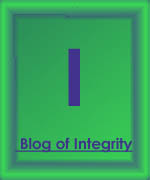Someone well-meaning recently suggested that I should not see myself as disabled.
In fact, more accurately, the phrase used was “I still don’t think you need to see yourself as disabled.”
The fear being?
“There is always a danger that once you believe that as the case, you will never then see yourself as being independently mobile again.”
The discussion had started because I had referred to the experience of being visibly disabled when I first used a mobility scooter.
I had described myself as disabled, for the first time where this person was concerned. And they couldn’t get their head around it.
Their use of the words ‘I still’ showed that heels were firmly dug in.
Many disabled people will have had to counter comments like these and deal with friends and family in denial.
It can really throw you. But I tried to explain.
First I tried to explain why people have a problem with disability in general.
Then, not for the first time, I tried to explain how my condition affects me.
I also pointed out that an able-bodied person generally considers two legs as the only means of being independently mobile.
Wheelchair users may have a different view.
To the average able-bodied person without any experience of disability a wheelchair represents imprisonment, lack of freedom, dependence.
To a disabled person a wheelchair can represent liberation, rediscovery of freedom and independence.
It helped me enormously to be able to refer to the
Social Model of Disability.But I wonder how much good it really did.
The following was very relevant to my argument:
"The social model of disability can (also) be used to understand the family lives and personal relationships of disabled people. This is because the cultural environment in which we all grow up usually sees impairment as unattractive and unwanted.
"... it is not surprising that many people with and without impairments do not know how to respond. This helps to explain why, for some people, coming to terms with a disabled lifestyle represents a personal or family tragedy.
"The social model also recognizes that for many people coming to terms with the consequences of impairment in a society that devalues disabled people and disabled lifestyles is often a personal tragedy. But the tragedy is that our society, and increasingly other societies, continue to discriminate, exclude and oppress people viewed and labelled disabled and this is the subject matter of emancipatory disability research."But can people we know and care about, whose opinions matter to us, be enlightened by being ‘quoted at’ in what can sometimes amount to an evangelical fervour?
I am at times desperate for people I know to understand my disability. But finding the right tone, the right balance, is difficult.
If I am told I shouldn’t see myself as disabled, I certainly feel I should respond.
I owe it to my self-worth and my own growing acceptance of my disability to at least try to explain my stance.
“for many people coming to terms with the consequences of impairment in a society that devalues disabled people and disabled lifestyles is often a personal tragedy.”This would explain why, after becoming disabled three years ago, I had a nervous breakdown.
It was a tragedy at the time. A bereavement, a loss of my former able-bodied self. I went into denial. And everyone around me went into denial.
No amount of theorising can reach you when you are in the first stages of dealing with a sudden disability.
But boy, can it help later on.
It’s been through blogging, and other bloggers that I have become familiar the Social Model, and I would now describe myself as a passionate advocate.
I really do believe that attitudes at large can disable people far more than their actual condition.
I believe that prejudice and ignorance cause untold damage, unless of course it is told.
Which is where battle commences, and activism begins.
Did I become a disabled activist all of a sudden by defending myself?
Activism is largely borne out of the experience of prejudice and ignorance.
These seem harsh words in relation to the person who caused this debate.
But friends and family, and even your own bewildered self can reject disability because prejudice and ignorance are largely to do with fear.
So I tried to explain things the best I could.
How I am disabled. Why I am disabled. And I was explaining this to someone who has known me for more than a decade.
But that person has not been through the mental processes I have
had to go through to arrive at where I am. And some days, I still haven’t really arrived.
I have been disabled for three years, but simply couldn’t acknowledge it for a long time.
It wasn’t just about receiving DLA or applying for a blue badge or any other external medical or societal validation that came my way.
It was about what was going on inside me.
The process of acceptance. Moving out of denial into a far healthier place.
A place of strength and knowledge.
When you are disabled, this is the place you want to reach.
And you want everyone who is dear to you to be there with you.
Only that takes longer. And sometimes it just may not be possible, because you can try to explain, but you can’t always make a person understand.



 I am now in possession of a commode.
I am now in possession of a commode.


 Anyway, the above was taken a few yards from my mum's house.
Anyway, the above was taken a few yards from my mum's house.
.jpg)







